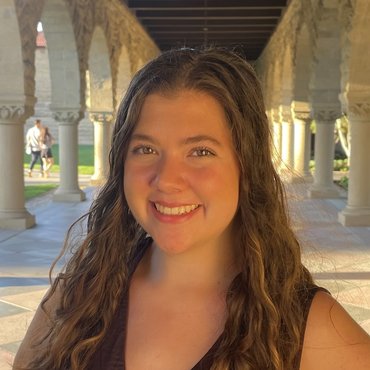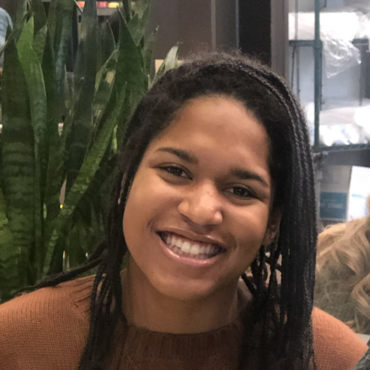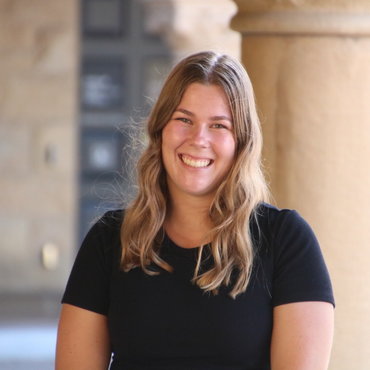
Zina Jawadi, '18, MS '19
Launching The A(bilities) Hub Initiative

Disability advocacy efforts have been vibrant at Stanford for decades, and over the past few years, students with disabilities have resumed advocating for a disability campus center.
In 2013, Vivian Wong, '12, realized that there was no disability community space or student organization at Stanford for students with disabilities.
She helped create a new position in the ASSU Executive Cabinet and worked with Krystal Le, '14, to found Power2ACT, a much-needed student organization that provided a safe space for students with visible and hidden disabilities.
When I arrived at Stanford in 2014, I saw that people with disabilities still lacked a physical space. I had just worked with my high school's administration to found a disability awareness program and thought I could draw on this experience to help make a meaningful impact at Stanford.
I am a member of several minority groups as a hard-of-hearing, Iraqi American, second-generation immigrant. My passion for disability advocacy began in the eighth grade, driving me to compete in more than 30 Original Oratory competitions and to join the Hearing Loss Association of America, California State Association. At Stanford, the skills from my nonprofit board involvement and my public speaking experience came in handy.
During my sophomore year, former Power2ACT president and ASSU Executive Cabinet member Chris Connolly, '15, and Kartik Sawhney, '18, reached out to help me revive the pursuit of a campus center with the ASSU Executive team. Together, we communicated to students, faculty, and administrators about the need for a physical space on campus.
I am often asked why it is important for a community to have physical space at the Farm. A physical space will allow students without disabilities to think about disability, increasing the visibility of disability and emphasizing the disability community's place at Stanford.

In November 2017, the A(bilities) Hub Initiative was launched in conjunction with the 2017-2018 Disability Awareness Week. We were appointed an official staff advisor, Carleigh Kude, and established a student-led committee for the A-Hub.
In launching the A-Hub, I discovered the many paths that our members take to join our community, including advocacy, disability studies, personal reasons, or a family member's experiences. Working with them, I learned how a few individuals with shared advocacy goals can make a community stronger and that unifying individual efforts can multiply the effects.
Currently, the A-Hub is a temporary space, and we are still working toward a long-term solution: an established community center with a full-time director.


